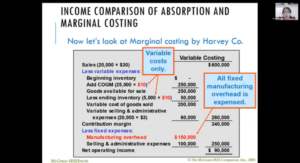The Faculty of Accountancy and Management, Universiti Tunku Abdul Rahman (UTAR), and the Faculty of Business and Management, Universitas Internasional Batam (UIB), successfully organized a Collaborative Teaching Collaboration program from November 2 to December 14, 2022. The program aimed to promote knowledge exchange, enhance teaching methodologies, and foster academic collaboration between the two esteemed institutions.
The collaborative teaching program brought together faculty members from UTAR and UIB, who shared their expertise and insights with students from both universities. The program included a series of lectures, workshops, and interactive sessions conducted by faculty members from each institution, covering various topics related to accountancy, management, and business.
The collaboration allowed students to learn from renowned professors and practitioners, gain exposure to different teaching styles and perspectives, and broaden their understanding of the subject matter. The program emphasized the importance of interdisciplinary learning and encouraged students to think critically, develop practical skills, and apply theoretical knowledge to real-world scenarios.


The collaborative teaching program also facilitated the exchange of best practices between UTAR and UIB, enabling faculty members to learn from each other’s experiences and explore innovative teaching methodologies. This collaborative approach aimed to enhance the overall quality of education and ensure the development of well-rounded graduates equipped with the necessary knowledge and skills for the global business environment.
The program concluded with a closing ceremony, where certificates of participation were awarded to the faculty members involved in the collaboration. The ceremony also provided an opportunity to reflect on the valuable insights gained and the positive impact of the collaborative teaching initiative on students’ academic growth.
UTAR and UIB thank all the faculty members and students who participated in the collaborative teaching program. Their enthusiasm, dedication, and active engagement contributed to the success of this collaboration. The institutions look forward to further strengthening their partnership and exploring more opportunities for academic collaboration.